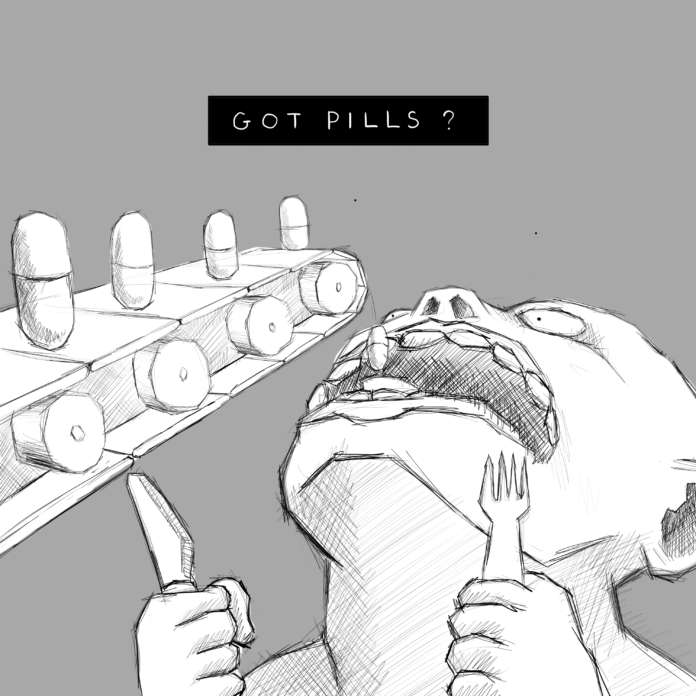Young adults today have been dubbed the painkiller generation, as named by Andrew Gregory in his article “Painkiller generation,” a title to add to the millennial collection: generation me, MyPod generation, generation now. However, this label is more serious than most and harder to dismiss.
About 60 percent of Americans are taking a prescription of some kind, with 15 percent of the population taking five prescriptions daily, according to the Huffington Post. The largest categories for these prescriptions are blood pressure, anti-depressants, cholesterol and opioid painkillers. These numbers are higher than the roughly 50 percent of the United Kingdom population on prescription drugs, according to BBC News, and doesn’t account for the medications being taken over the counter.
Drug abuse can present itself in many forms, including the use of prescription drugs meant for another person, overdosing on prescription medication, overdose on over-the-counter medication or illegal substances, as explained by the Addiction Community. These medications are commonly painkillers, whether prescribed or not.
Over-the-counter drugs are readily available to anyone old enough to buy them, and often are available at younger ages, as they have become household items. One in three young adults aged 18 to 24 admits to taking an over the counter pill once every day if faced with a small amount of pain or discomfort, according to Gregory. By using painkillers daily, the medicine loses its effect on the body and allows for the cycle of painkiller abuse.
Taking medication without a real need can cause the body to become dependent on it. Many forms of painkillers, if used daily, can cause the user feel withdrawal headaches if they stop taking medication suddenly, according to the Huffington Post. This increases the likelihood of the user to continue taking the pill, eventually leading to a higher dose. After a certain point, the drugs no longer serve to fix the small amount of discomfort users were experiencing, but instead fulfill an emotional need, like a mood change or a wave of anxiety.
Those who take aspirin, ibuprofen or paracetamol have the highest risk of suffering liver damage, heart attacks, kidney problems and strokes, as stated by the Huffington Post.
To put overuse of over-the-counter drugs to bed, those using them must first realize that there is an issue. If you or someone you know is taking pills that are not prescribed to them for longer than a period of seven days, it is time to go to a doctor or clinic.
For those who notice that they take pills for more issues than necessary, there are other ways to deal with pain. Perhaps a few sessions of yoga or a chiropractic session could relieve the backache from carrying too many books to class. An extra 20 mL of water a day could keep that headache from lingering, or maybe a pass on the third coffee of the day. A stomachache could be cured with some crackers and ginger-ale or a solid amount of rest. If an issue is painful enough to need medication, it is best to visit a doctor because they fully understand the dosage and long-term effects of the medicine they prescribe.
Pills are meant not to be a continual crutch, but rather a short-term medical solution to a real problem. Avoid using painkillers to solve small issues, so that when faced with large issues, your body can recover from other medications.






